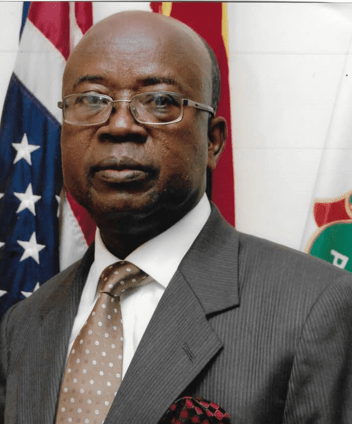By KINGSLEY LARBI (Rev.Prof)
In the annals of leadership and institutional growth, few stories resonate as powerfully as the journey to establish a thriving university from modest beginnings.
The narrative of Chapter 30 in Born to Win by Prof. E.K. Larbi captures this essence, recounting the vision, resistance, and eventual triumph surrounding the acquisition of the Sunkwa Lodge.
This chapter serves as both a historical recount and a lesson in resilience, demonstrating the power of unwavering faith and determination in pursuing groundbreaking ventures.
The story’s context in 1996 Ghana, a time when private university education was virtually non-existent, makes it a compelling case study for contemporary leaders and institutions.
A Vision in the Making
In late 1996, amidst a growing national demand for tertiary education, I found myself contemplating the expansion of Central Christian College into a liberal arts university.
The college had thus far offered certificates, diplomas, and degree programs, yet none bore formal accreditation. The vision was clear: to elevate the institution into a fully-fledged university that could meet Ghana’s manpower needs and contribute to national development.
The pivotal moment came during a visit to Rev. Michael Asiedu at the Church of Pentecost Transit Quarters. Along the way, an imposing, seemingly abandoned building caught my eye.
This was the Sunkwa Lodge, a property owned by Mrs. Cecilia Morkor Baah, widow of C.C.K. Baah, a former minister under Ghana’s first president, Dr. Kwame Nkrumah. The building’s strategic location and size made it an ideal site for the envisioned university. However, the road to acquiring it would prove to be a daunting challenge.
Resistance and Feasibility
At the time, private participation in university education was a foreign concept in Ghana. Public universities held a monopoly, and the financial viability of such a project was heavily questioned.
Within the International Central Gospel Church (ICGC), where I served, opinions were divided. The church was only 13 years old and still grappling with completing its first auditorium. Many viewed the university project as an insurmountable financial burden.
Nevertheless, a feasibility study committee was formed on February 7, 1997. Comprising experts in finance, law, and academia, the committee conducted a thorough analysis.
The findings were encouraging: the proposed university was not only viable but also aligned with ICGC’s vision and Ghana’s educational needs. The report underscored the potential social and economic benefits, acknowledging the inevitable hardships of the initial years.
The Financial Hurdle
Securing the Sunkwa Lodge was not without its challenges. Leasing the property required significant resources, and the church’s lean finances made it a contentious issue. Contemporary Ghana mirrors similar struggles, with private educational institutions grappling to secure funding in an economy where inflation reached 40.1% in October 2023. Back in 1997, these difficulties sparked debates within the church’s leadership, with some advocating for abandoning the project altogether.
The Turning Point
Despite the opposition, support from key figures, including Rev. Dr. Mensa Otabil, bolstered the project’s momentum. His diplomatic approach and belief in the vision helped soften dissenting voices. At a critical Presbytery meeting, he posed a question that remains etched in my memory: “Dr. Larbi, is this idea sheer faith, a vision, or what?” My response, though not verbatim, conveyed my unwavering belief in the project’s feasibility and divine backing.
This turning point exemplifies the importance of visionary leadership in the face of adversity. It also highlights the role of collaboration and consensus-building, lessons that are equally relevant in today’s leadership and organizational contexts.
Contemporary Reflections
Fast forward to today, the fruits of that vision are evident. Private universities in Ghana now play a pivotal role in addressing the educational gap, with institutions like Regent University College of Science and Technology contributing significantly to national development. The Sunkwa Lodge stands as a symbol of what is possible when faith, vision, and persistence converge. The broader lesson for contemporary leaders is clear: every groundbreaking idea will encounter resistance, but perseverance can transform challenges into milestones.
Conclusion
The story of the Sunkwa Lodge Challenge is more than a chapter in a book, it is a testament to the transformative power of vision and resilience. In a world where bold ideas are often met with skepticism, this narrative serves as a reminder that with determination and the right partnerships, even the most daunting dreams can become reality. As Ghana continues to navigate its socioeconomic challenges, the lessons from this journey remain a beacon of hope and inspiration for future generations.
Let the story of the Sunkwa Lodge inspire us all to pursue visions that transcend our present limitations, knowing that the challenges of today are but stepping stones to the victories of tomorrow.










